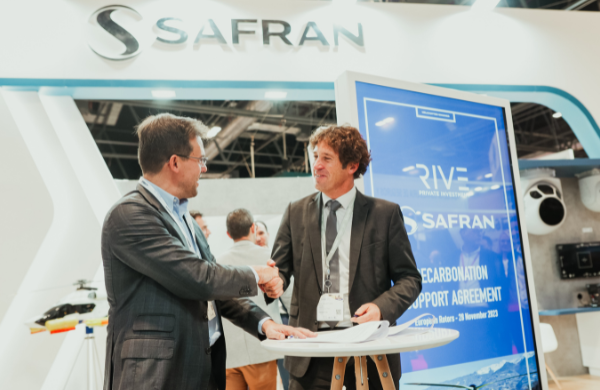The second annual Sustainable Skies World Summit saw industry innovators come together with one goal – decarbonising aviation.
The two-day event, held at Farnborough International Airport on 17-18 April 2023, featured back-to-back panels, discussions and speeches from industry experts, technology innovators, academia, investors, regulators and UK government representatives to discuss the move from planning to implementation of net-zero sustainability initiatives.
As the summit progressed, “pace” and “policy-making” were the top buzzwords, with each frequently highlighted by speakers as key problem areas to tackle in order to meet the ambitious goal for net-zero aviation by 2050.
No time to spare
Sustainable Aviation Fuel (SAF) was another hot topic on the keynote stage. The event kicked off with a briefing from Matthew Gorman, Director of Sustainability at Heathrow Airport, who indicated the transition from Jet A to SAF will represent 40% of the UK’s roadmap to net-zero aviation.
While last year’s concerns surrounded finding enough demand for SAF, this year saw this shift to the pace of production.
By 2025, the UK aims to have five fully operational SAF plants, prompting a shared sense of urgency from speakers and attendees alike.
During a panel discussing how the industry can make SAF happen faster, Luis Gallego, CEO of IAG, explained that meeting the ambitious goal for 10% of UK aviation fuel to be SAF by 2030 will require 14 SAF plants in operation.
Willie Walsh, Director General of the International Air Transport Association (IATA), added that the critical issue affecting the rate of SAF production in the UK stems from a lack of the proper facilities and government action frameworks for a greater production of SAF.
Speaking on behalf of the government during a later address was Secretary of State for Transport, Mark Harper MP, who outlined government plans to push for a green economy, citing the newly published ‘Developing a UK SAF industry’ report by Philip New, former CEO of the Energy Systems Catapult and BP Alternative Energy, as a reference for what conditions might be necessary to facilitate a successful SAF industry in the UK.
The government’s investment in decarbonising aviation also stretched to the research and development of zero-emission fuels, according to Harper, including over £1 million in government funding for research into speeding up the development of liquid hydrogen aviation technology.
“It’s not about aviation declining,” said Harper, “it’s about flying differently by aircraft powered by cleaner sources of power and modernising our airports and airspace.”
Full speed ahead
Kicking off an afternoon dedicated to Advanced Air Mobility (AAM) was an opening talk by Russ Dunn, Chief Technology Officer, GKN Aerospace, who summarised the top three priorities for reshaping the industry: developing global policies, developing the technology and products necessary for impact-free flight and developing the clean energy and infrastructure required to facilitate these new products.
In the following panel, Trevor Woods, Director of Regulatory Affairs, Vertical, referenced the 1,400 pre-orders for Vertical’s AAM aircraft, which is expected to compete with conventional urban transport like taxis and trains.
Despite the collective optimism from the panel about the development of new AAM products, there was a shared recognition of the challenges yet to come.
Lirio Liu, Executive Director of Aircraft Certification, FAA, urged the importance of proper due diligence in crafting safety regulations: “As a regulator, the challenge is really trying to keep pace with the innovation and being able to ensure that we have the right safety standards at the time when they’re needed, and continue to ensure that what we have in place is durable and adaptable, so that we can continue to progress.”
Whilst agreeing on the importance of “safety first”, Woods added a caveat that a more unified set of regulations across the board was still needed, referencing the complexity costs and delays to important investment as unwanted byproducts of complying with multiple regulations.









